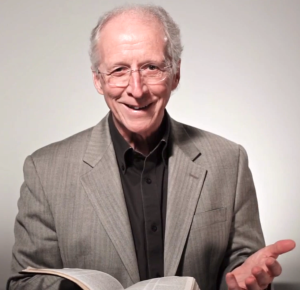 A Beginner’s Guide to ‘Free Will’ – Article by John Piper (original source man was sinless and able not to sin. For God “saw everything that he had made, and behold, it was very good” (Genesis 1:31). But he was also able to sin. For God had said, “In the day that you eat of it [the tree] you shall surely die” (Genesis 2:17).
A Beginner’s Guide to ‘Free Will’ – Article by John Piper (original source man was sinless and able not to sin. For God “saw everything that he had made, and behold, it was very good” (Genesis 1:31). But he was also able to sin. For God had said, “In the day that you eat of it [the tree] you shall surely die” (Genesis 2:17).
As soon as Adam fell into sin, human nature was profoundly altered. Now man was not able not to sin. In the fall, human nature lost its freedom not to sin.
Why is man not able not to sin? Because on this side of the fall “that which is born of the flesh is flesh” (John 3:6), and “the mind of the flesh is hostile to God, for it does not submit to God’s law; indeed, it cannot, and those who are in the flesh cannot please God” (Romans 8:7–8, my translation). Or, as Paul says in 1 Corinthians 2:14, “The natural person does not accept the things of the Spirit of God, for they are folly to him, and he is not able to understand them because they are spiritually discerned.”
Notice the word cannot twice in Romans 8:7–8, and the words “is not able” in 1 Corinthians 2:14. This is the nature of all human beings when we are born — what Paul calls the “natural person,” and what Jesus calls “born of the flesh.”
Too Rebellious to Submit to God
This means, Paul says, that in this condition we “cannot please God,” or, to put it another way, “we are not able not to sin.” The basic reason is that the natural person prefers his own autonomy and his own glory above the sovereignty and glory of God. This is what Paul means when he says, “The mind of the flesh is hostile to God, for it does not submit . . . ”
Glad submission to God’s authority, and to God’s superior value and beauty, is something we are not able to do. This is not because we are kept from doing what we prefer to do. It is because we prefer our own authority, and treasure our own value, above God’s. We cannot prefer God as supremely valuable while preferring ourselves supremely. Continue reading
